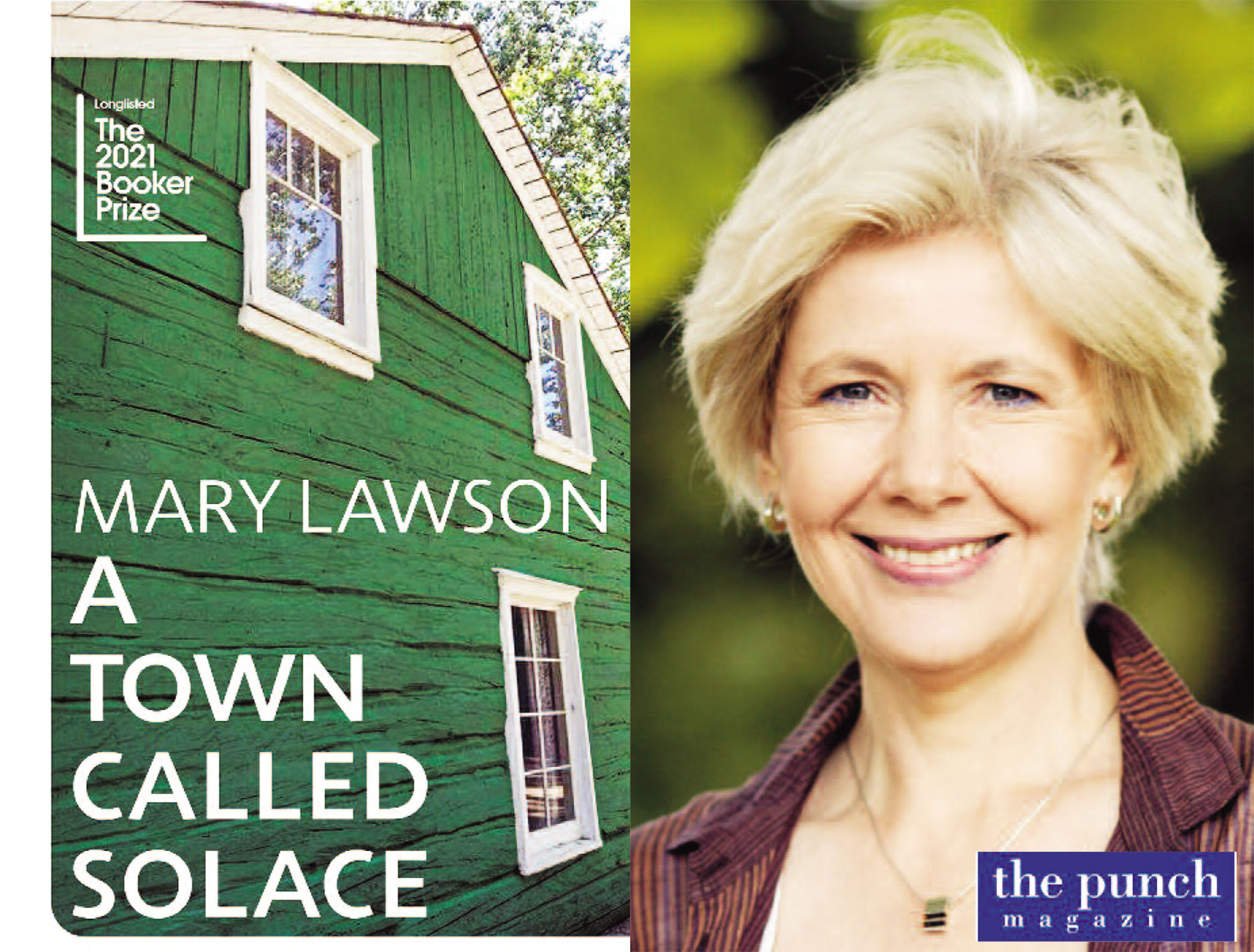
In the third novel by the UK-based author, which became an instant bestseller when it was published in her native Canada early this year, family is the cornerstone around which the themes of death, love and loss revolve
A Town Called Solace, Mary Lawson’s third novel which has been longlisted for the 2021 Booker Prize, will take you to a remote town in Northern Ontario in 1972 and fix your heart there. Removed from the hubbub and fanfare of metropolises, Solace is endowed with a marvelous landscape, but also a fair share of its own quirks and hardships. The best ice-cream in the town, sold by a librarian, needs to be hammered with a chisel. Jim Peake is the only plumber and carpenter working for the whole town. In extreme winters, only one out of the two cafes remains open, serving the bare minimum. Like most quintessential small towns, everyone here is aware of everyone else’s affairs. Lawson’s prose is lucid and she employs a fairly straightforward plot. Her simplicity and unpretentious, clear prose is in line with the book’s setting — the beautiful, sprawling area of lakes, rocks and forests known as the Canadian Shield, in Northern Ontario. “Locating the story there was an act of self-indulgence on my part; it is the landscape I think of when I think of home, and writing about it allows me to revisit it in my mind,” writes UK-based Lawson in the Acknowledgements section of the novel. Her carefully crafted characters draw the reader into the intricately woven narrative. The novel, which had become an instant bestseller when it was published to critical acclaim in her native Canada early this year, seems committed to its central concerns — redemption from profound grief and loneliness, both in content and form.
The book opens with informing the reader that Clara’s rebellious older sister has been gone for around two weeks without any hint of her whereabouts, leaving Clara devastated. She spends her days standing by the living room window, looking towards the woods so that she doesn’t miss a sign Rose might be trying to send her. She must do everything she can so that Rose comes back. Therefore, she invents random rules in her head and follows them earnestly; like scrambling Rose’s clothes on floor, counting her footsteps to and from school or brushing her teeth in a specific manner. Meanwhile, she’s also supposed to feed Moses, the cat of her affectionate neighbour, Mrs. Orchard, who has been in the hospital for days.

A Town Called Solace
By Mary Lawson
Penguin Random House
pp. 304 pages, Rs 699
Elizabeth Orchard, while in hospital, recounts the story of how the three-year-old son of her new neighbours, Liam, became an integral part of her life. She had an epitome of a loving and caring husband, but her inability to bear children rendered her life despondent. After numerous miscarriages, she slipped into depression, but Liam entered her life as a new ray of light. She evokes vivid images of how scared she was of having a breakdown on seeing the children of the couple, of her first meeting with him, of the frequent visits thereafter, following a routine of drawing and colouring, eating cookies and playing, the most joyous moments of her life. While Liam gradually filled an empty space in Mrs. Orchard’s life, the tragic separation of the two following a catastrophic decision on the part of Mrs. Orchard left a gigantic gaping hole in her life for all times to come.
Keeping vigil dutifully on her post by the living room window, Clara sees a stranger entering Mrs. Orchard’s house, moving in his suitcases and cardboard boxes. Furious at the intrusion, she’s certain that this uninvited man is a thief, but her parents’ obliviousness to her concerns adds massively to her agony. Later on, she acquires the knowledge that Mrs. Orchard is dead at the hands of this stranger. She couldn’t comprehend the possibility of Mrs. Orchard no longer being there; compounding the weight of this shattering news was the idea of her parents lying about her still being in the hospital, she exclaims she can no longer trust them. A hysterical Clara begins to wonder what if Rose is dead too and that her parents have been lying to her, “the idea made her chest shrink inwards until it was a tight, hard little knot like a walnut, so tight she couldn’t breathe”. The stranger is no one else but Liam, whose strained marriage has disintegrated after eight years and his wife Fiona’s bitter words about his inability to love keep ringing in his ears. Liam arrives in Solace on receiving a letter informing him that Mrs. Orchard has died and bequeathed her house to him.
Divorced, having left his job and utterly alone, he doesn’t know what to do with his life next. Fiona was the only person he had ever been close to but after the initial years he had been as lonely in his marriage as he had ever been in his life; “those final years with her had all but destroyed him.” Hence, the sojourn in Solace is supposed to give him some time to figure out a way through his mid-life crisis and then pack his bags for his next destination. In the following days, however, Clara and Liam strike an unusual friendship. They won’t talk a lot but he knew that the familiarity of Mrs. Orchard’s home comforted her, the ritual of unpacking his boxes was oddly satisfying for a curious child, and his company an escape from the fraught relationship with her parents. Liam is seemingly the only one who understands the magnitude of suffering Clara’s going through; she is almost like a shadow of the three-year-old Liam. He doesn’t fail to comprehend her dependence on him — the way he would depend on Mrs. Orchard for love and would never want to leave her home and go back to his parents.
Family is the cornerstone around which the themes of death, love and loss revolve; the destinies of Mrs. Orchard, Liam and Clara are intertwined through their own peculiar experiences of loneliness and the ensuing agony, of how they become agents at the least, of solace and at the most, of rediscovery for each other. The book has a universal appeal: while Lawson affirms that life is difficult and emotional crises are not a rarity, she also reassures us with the hope of healing, of feeling less lonely, of falling in love again and of almost magically finding people who fill the void in our lives. She makes the mundane interesting by making characters indulge in such details as how syrup is extracted from maple trees or why shingles won’t stick if it’s laid when it’s cold. Heart-warming, suspenseful and soulfully crafted, A Town Called Solace establishes the paramount necessity of being loved and the desire to love, of the significance of acknowledging trauma and the ability to empathize.
More from The Byword
Comments
*Comments will be moderated











